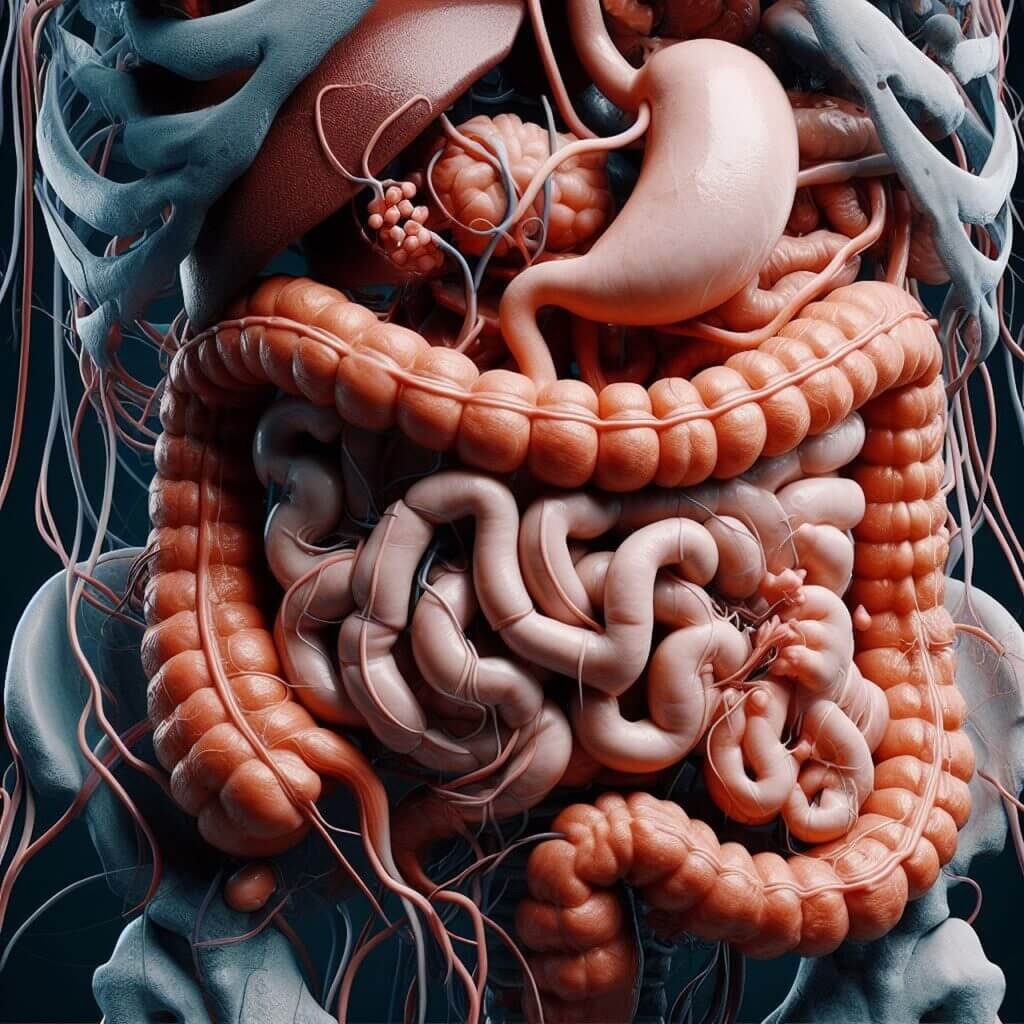If you’re a boomer, you may be wondering how you can reduce the risk of gastrointestinal issues through your diet. Well, we’ve got some great news for you! By making a few simple changes to what you eat, you can take steps towards improving your digestive health and enjoying a more comfortable life. In this article, we will explore some dietary tips and tricks specifically designed to help boomers maintain a healthy gut and minimize the risk of gastrointestinal problems. So, let’s dive right in and discover how you can start taking control of your digestive well-being!

Understanding Gastrointestinal Issues
Gastrointestinal issues are common among people of all ages, but they can have a particularly significant impact on boomers. These issues refer to any problems related to the digestive system, including the stomach, intestines, and other organs involved in digestion. The most common gastrointestinal issues among boomers include acid reflux, gastritis, irritable bowel syndrome (IBS), and constipation.
Causes of Gastrointestinal Issues
There are several factors that can contribute to gastrointestinal issues. Lifestyle choices such as poor diet, lack of exercise, and high stress levels can have a negative impact on the digestive system. Other causes include certain medications, food intolerances or allergies, and underlying medical conditions. It’s essential for boomers to identify the root cause of their gastrointestinal issues to effectively manage and prevent them.
Impact of Gastrointestinal Issues on Boomers
Gastrointestinal issues can significantly affect the quality of life for boomers. They can lead to discomfort, pain, and disruption of daily activities. In addition to physical symptoms, gastrointestinal issues can also cause emotional stress and anxiety. It’s important for boomers to take steps to prevent and manage these issues to maintain optimal digestive health and overall well-being.
Dietary Modifications for Gastrointestinal Health
Making dietary modifications is a crucial aspect of managing gastrointestinal issues and reducing the risk of developing further complications. A balanced diet plays a vital role in supporting the digestive system and promoting gastrointestinal health.
Importance of a Balanced Diet
A balanced diet provides the body with essential nutrients, vitamins, and minerals necessary for proper digestion and overall health. It ensures that the body receives a variety of food groups in appropriate portions, including fruits, vegetables, whole grains, lean proteins, and healthy fats. Boomers should focus on consuming a wide range of nutritious foods to support their gastrointestinal health.
Fiber Intake
Fiber is a key component of a healthy diet, especially for promoting gastrointestinal health. A high-fiber diet can help prevent constipation, regulate bowel movements, and reduce the risk of developing certain gastrointestinal issues. Boomers should aim to consume both soluble and insoluble fibers, as they offer different benefits for the digestive system. Soluble fiber can be found in foods such as oats, beans, and fruits, while insoluble fiber is present in vegetables, whole grains, and nuts.

Staying Hydrated
Hydration is essential for maintaining proper digestive function. Boomers should ensure they are drinking an adequate amount of water throughout the day to support their gastrointestinal health. Water helps soften stool and promote regular bowel movements, preventing constipation. Additionally, staying hydrated can aid in breaking down food and absorbing nutrients effectively.
Avoiding Trigger Foods
Certain foods can trigger gastrointestinal issues and exacerbate existing problems. Boomers should be mindful of their personal food triggers and avoid or limit them in their diet. Common trigger foods for gastrointestinal issues include spicy foods, fried and fatty foods, caffeine, alcohol, and high-fat dairy products. It’s essential for boomers to pay attention to their body’s response to different foods and make dietary adjustments accordingly.
Including Gut-Friendly Foods in the Diet
Incorporating gut-friendly foods into the diet can have a positive impact on gastrointestinal health. These foods help promote a healthy balance of bacteria in the gut and support proper digestion.
Probiotics and Fermented Foods
Probiotics are live bacteria that offer numerous benefits for gut health. They help restore the natural balance of bacteria in the digestive system and improve overall digestion. Boomers can incorporate probiotics into their diet by consuming foods such as yogurt, kefir, sauerkraut, and kimchi. These foods are rich in beneficial bacteria and can help maintain a healthy gut.
High-Fiber Fruits and Vegetables
Fruits and vegetables are excellent sources of fiber, which is essential for gastrointestinal health. Boomers should aim to include a variety of high-fiber fruits and vegetables in their diet. Examples of fiber-rich fruits include berries, apples, pears, and oranges. When it comes to vegetables, options like broccoli, spinach, Brussels sprouts, and sweet potatoes are all great choices. These foods not only provide fiber but also contain essential vitamins and minerals that support overall digestive health.
Whole Grains and Legumes
Whole grains, such as brown rice, whole wheat bread, and quinoa, are rich in fiber and can help improve digestion. Legumes, including beans, lentils, and chickpeas, are also high in fiber and offer additional nutritional benefits. Boomers should consider incorporating these foods into their meals to boost their fiber intake and support gastrointestinal health.

Lean Proteins and Healthy Fats
Choosing the right sources of protein and fats is crucial for gastrointestinal health. Lean proteins, such as fish, chicken, tofu, and eggs, provide essential amino acids without adding unnecessary fat or strain on the digestive system. Healthy fats found in foods like avocado, nuts, seeds, and olive oil can help reduce inflammation and promote proper digestion. Boomers should focus on incorporating these protein and fat sources into their diet for optimal gastrointestinal health.
Benefits of Probiotics and Fermented Foods
Probiotics and fermented foods offer several benefits for gastrointestinal health, making them an excellent addition to a boomer’s diet.
Improving Gut Health
Probiotics help maintain a healthy balance of bacteria in the gut, which is essential for proper digestion and overall gastrointestinal health. By consuming probiotics and fermented foods, boomers can support the growth of beneficial bacteria and reduce the risk of developing gastrointestinal issues.
Boosting Digestion
Probiotics can enhance digestion by breaking down food more effectively and promoting the absorption of nutrients. By including probiotics in their diet, boomers can improve their digestive efficiency and reduce the occurrence of common gastrointestinal issues, such as bloating, gas, and indigestion.
Enhancing the Immune System
The majority of the immune system resides in the gut. Probiotics help strengthen the immune system by supporting a healthy gut microbiome. By incorporating probiotics and fermented foods into their diet, boomers can enhance their immune response and reduce the risk of infections and illnesses.
High-Fiber Fruits and Vegetables for Gastrointestinal Health
Including high-fiber fruits and vegetables in the diet is crucial for maintaining gastrointestinal health. Fiber offers numerous benefits for digestive function and overall well-being.

Importance of Dietary Fiber
Dietary fiber plays a vital role in promoting regular bowel movements, preventing constipation, and regulating blood sugar levels. It adds bulk to the stool, making it easier to pass through the digestive system. Boomers should aim to incorporate a variety of fiber-rich foods into their diet to support optimal gastrointestinal health.
Fiber-Rich Fruits
Fruits are an excellent source of fiber and offer a wide range of nutritional benefits. Boomers should focus on consuming fruits such as raspberries, blackberries, strawberries, and pears, as they are particularly high in fiber. These fruits not only provide dietary fiber but also contain antioxidants and vitamins that support overall digestive health.
Fiber-Rich Vegetables
Vegetables are another essential source of fiber and should be included in a boomer’s diet. Options such as broccoli, carrots, Brussels sprouts, and artichokes are rich in fiber and provide additional nutrients that promote gastrointestinal health. By incorporating these fiber-rich vegetables into their meals, boomers can support their digestive system and reduce the risk of gastrointestinal issues.
Including Whole Grains and Legumes in the Diet
Whole grains and legumes are nutritional powerhouses that offer numerous benefits for gastrointestinal health. Boomers should consider including these foods in their diet to support proper digestion and overall well-being.
Nutritional Benefits of Whole Grains
Whole grains provide a significant amount of fiber, vitamins, minerals, and antioxidants. They help regulate bowel movements and promote a healthy digestive system. Boomers should opt for whole grain options such as brown rice, whole wheat bread, quinoa, and oats, which offer more nutritional benefits than refined grains.
Incorporating Legumes into Meals
Legumes, including beans, lentils, and chickpeas, are an excellent source of fiber and protein. They can enhance digestion and help maintain a healthy gut microbiome. Boomers can add legumes to their meals by incorporating them into soups, salads, and various other dishes. Legumes not only provide essential nutrients but also offer a satisfying and filling component to meals.

Dietary Tips for Consuming Whole Grains and Legumes
To ensure proper digestion and reduce the risk of gastrointestinal issues while consuming whole grains and legumes, boomers should follow a few tips. It’s important to cook them thoroughly to make them easier to digest. Soaking legumes before cooking can help reduce gas and bloating. Additionally, gradually increasing fiber intake and drinking plenty of water can aid in the digestion of whole grains and legumes.
Opting for Lean Proteins and Healthy Fats
Choosing the right sources of protein and fats is essential for gastrointestinal health. Boomers should focus on incorporating lean proteins and healthy fats into their diet to support optimal digestion.
Choosing Lean Protein Sources
Lean proteins, such as fish, chicken, turkey, tofu, and eggs, provide essential amino acids without adding unnecessary fat or strain on the digestive system. These protein sources are easier to digest and can help prevent gastrointestinal issues. Boomers should prioritize lean proteins in their diet to support their digestive health.
Healthy Fats for Gastrointestinal Health
Healthy fats, such as those found in avocados, nuts, seeds, olive oil, and fatty fish like salmon, offer several benefits for gastrointestinal health. They help reduce inflammation in the digestive system and support nutrient absorption. Boomers should include these healthy fats in their diet to maintain optimum gastrointestinal health.
Hydration and its Impact on Digestion
Proper hydration is crucial for maintaining good digestion and overall gastrointestinal health. Boomers should focus on staying hydrated to support their digestive system.
Importance of Staying Hydrated
Water is essential for digestion as it helps soften stool, promote regular bowel movements, and prevent constipation. Boomers should ensure they are drinking an adequate amount of water throughout the day to support optimal gastrointestinal health. Staying hydrated is particularly important for boomers as dehydration can lead to digestive problems and exacerbate existing gastrointestinal issues.
Hydrating Foods and Beverages
In addition to drinking water, boomers can increase their hydration levels by consuming hydrating foods and beverages. Foods such as watermelon, cucumbers, strawberries, and lettuce have high water content and can contribute to overall hydration. Additionally, herbal teas and homemade fruit-infused water can provide hydration while offering additional nutritional benefits.
Water Intake Recommendations
The daily water intake recommendation varies depending on factors such as age, activity level, and overall health. As a general guideline, boomers should aim to drink at least eight to ten cups (64-80 ounces) of water per day to maintain proper hydration and support gastrointestinal health.
Identifying and Avoiding Trigger Foods
Identifying and avoiding trigger foods is crucial for managing gastrointestinal issues and reducing the risk of flare-ups. Boomers should be aware of common trigger foods and make dietary adjustments accordingly.
Common Trigger Foods for Gastrointestinal Issues
Certain foods can trigger gastrointestinal issues and exacerbate existing problems. Boomers should pay attention to their body’s response to different foods and identify their personal trigger foods. Common trigger foods for gastrointestinal issues include spicy foods, fried and fatty foods, caffeine, alcohol, and high-fat dairy products. By avoiding or limiting these trigger foods, boomers can reduce the risk of gastrointestinal discomfort and promote overall digestive health.
Keeping a Food Diary
Keeping a food diary can be an effective way for boomers to identify their personal trigger foods. By recording the foods they consume and any symptoms experienced, they can identify patterns and make necessary dietary adjustments. A food diary can also help healthcare professionals provide more accurate recommendations for managing gastrointestinal issues.
Elimination Diets
In some cases, boomers may need to follow an elimination diet to identify specific trigger foods. This involves temporarily removing certain foods from their diet and gradually reintroducing them to determine which ones lead to gastrointestinal issues. Boomers should consult a healthcare professional or registered dietitian before embarking on an elimination diet to ensure they are meeting their nutritional needs during the process.
Additional Lifestyle Factors for Gastrointestinal Health
In addition to dietary modifications, there are other lifestyle factors that boomers can consider to support their gastrointestinal health.
Regular Physical Activity
Regular physical activity plays a crucial role in maintaining overall digestive health. Exercise helps stimulate the bowels, promoting regular bowel movements and reducing the risk of constipation. Boomers should aim for at least 150 minutes of moderate-intensity aerobic activity per week, along with strength training exercises to support their gastrointestinal health.
Stress Management Techniques
High levels of stress can have a negative impact on digestion and worsen gastrointestinal issues. Boomers should prioritize stress management techniques such as deep breathing exercises, meditation, yoga, or engaging in hobbies and activities that bring joy and relaxation. By managing stress effectively, boomers can reduce the risk of gastrointestinal issues and promote better overall well-being.
Getting Enough Sleep
Adequate sleep is essential for optimal gastrointestinal health. Poor sleep habits can disrupt the digestive system and lead to various gastrointestinal issues. Boomers should aim for 7-9 hours of quality sleep each night to support their digestion and promote overall well-being.
In conclusion, boomers can reduce the risk of gastrointestinal issues through dietary modifications and lifestyle changes. By focusing on a balanced diet, including gut-friendly foods, identifying and avoiding trigger foods, staying hydrated, and incorporating regular physical activity and stress management techniques, boomers can promote optimal gastrointestinal health and enhance their overall well-being. It’s important for boomers to prioritize their digestive health to maintain a high quality of life as they age.


